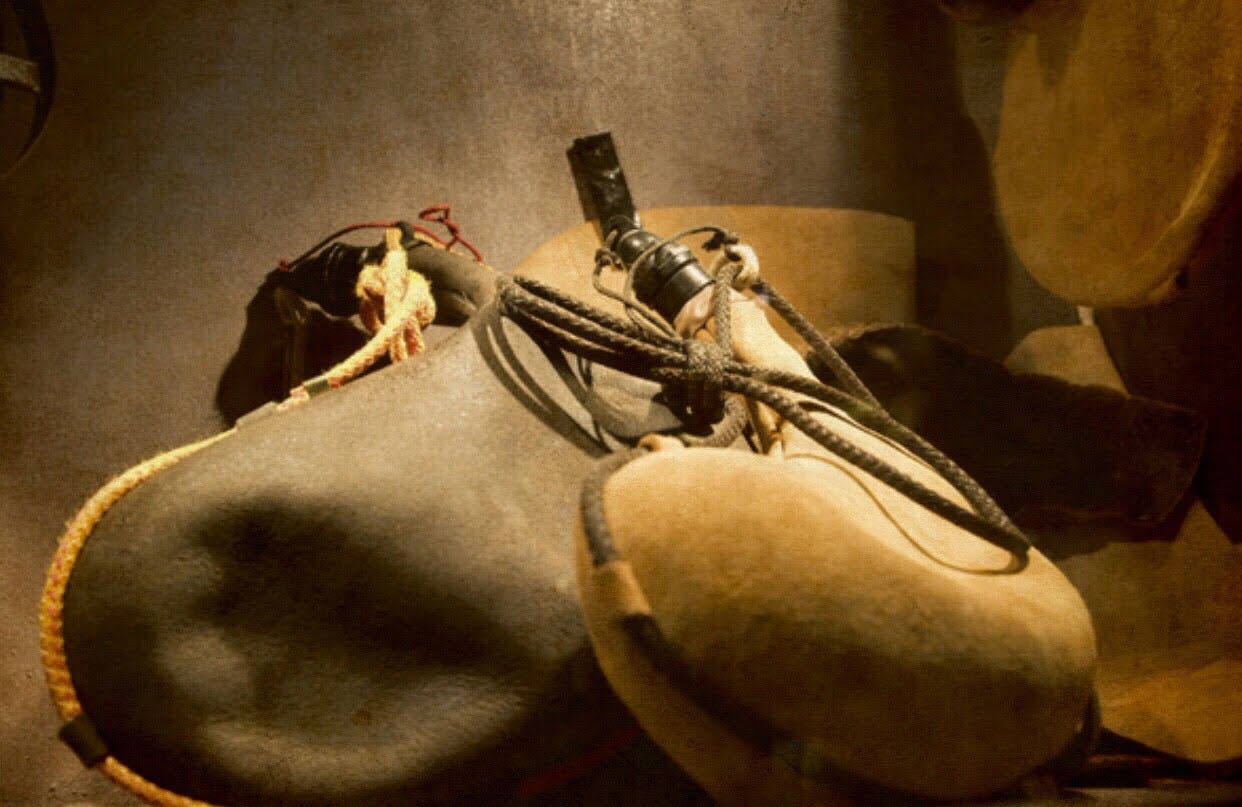I started this series about my mid-life crisis by sharing my difficult health journey (I'm doing fine now, yay!). Then I confessed I chased two wild-eyed ambitions in one year: the dissertation research I thew myself into then promptly abandoned, followed by a massive fiction project I set aside.
Along the way, I noted there were underlying perspective shifts I have been sorting out that predated the above. I delayed sharing these in this series because I needed to warm up. Or maybe I delayed because this one is a little risky. My take could be taken wrong; or misinterpreted. You may disagree with me. You could think I've gone off the deep end. I haven't. This feels like a fresh start in ways that are motivating. Perhaps it will be for you too.
I have come to hold certain convictions and feel several ways about the world that are shaped by experience, leadership roles, and the access I have had behind the curtain in the American church. By this, I mean primarily the institutional church organizations characterized by American Evangelical Christianity and all the positives and negatives that come with that characterization.
I've discovered that I am not alone in these convictions. This is less of an individual declaration of my opinions and more of a reflection of a sub-community of Christ-followers who no longer identify with mainstream American Christianity for various reasons. We have found a path forward that shows more promise and inspires more hope. Here are three such convictions from the community I have found:
1) We have realized the American church has lost focus on what matters.
The signs of the times for the American church are looking bad, but that is not just a result of changes in the culture that put the church in a bad light. We have done this to ourselves. How? By focusing on all the most minute and divisive parts of Christian culture. Minor factionalized and politicized matters have become the main thing when they are not. A number of us have realized this is not the way, and believe the American church is heading towards a painful near-term future.
In light of these realizations, we are engaged in careful deconstruction and focused reconstruction. Some of us are engaged in theological deconstruction (and that can be done healthily, believe it or not. I did that back in the late 90s, to discover what my true doctrinal convictions are.) But not all of us are in that kind of deconstruction. Instead, pretty much all of us are deconstructing the value of Western Christendom. Those institutions have too often been complicit in what amounts to a new "captivity of the church" divorced from the values of the kingdom of God. I won't list all the distractions along the way, nor the petty issues that divide American Christians. Instead, I'll just say that we don't like the trajectory of the Western church and have been looking for a new way for some time.
For me, this has meant several changes, including:
Not getting drawn into the distractions from the “first things”
Spending little to no time-consuming American news and politics
Re-centering core theological truths in my beliefs and practices
I no longer identify myself as an American Evangelical
Disentangling from parochial denominational arguments
Letting go of power
Not worrying about the decline of the American church
2) We disciple and multiply a remnant in new wineskins.
How have we engaged in the new ways, or rediscovered forgotten ways? Models and attempts to live this out are myriad but tied together by a certain set of values more focused on deep training and relational discipleship. It manifests in a more humble and less loud approach. We feel it is more like Jesus, who praised the smaller ways of influencing with metaphors of salt, seed, yeast and light, with common, everyday examples like bread and vines. At our core, we all want to multiply disciple-makers and to make way for that new wine we have been sewing up new wineskins (Luke 5:36-39). The way we operate may look weird to Western Christendom, but we are getting a remnant ready for what is to come.
We think the remaining strength of the American church is better applied in a more concentrated version that might be by nature smaller. This shift is difficult for those who only value what grows large. But we are choosing humility over being humiliated within the value sets of American Christianity.
Some of us use a kind of bi-focal leadership to do this. We may still engage with and focus the work within old wineskins and don't disparage the old wine. We are not here to burst the old wineskins; we are here to empower the next generation of disciple-makers, to experiment with new models that might avoid the current malaise of the American church. We seek to equip leaders that might outlast and overcome the present distractions—of whatever kind manifest, and be ready for the new wine.
For me, this has meant several changes, including:
Doing church differently, centered on scripture conversations and disciple-making
Spending more time with non-Christians than Christians
No longer giving automatic value to what is large or to statistical growth (not counting "attendance")
Giving away 90% of our church's income to missions, church planting, and those in need
Adjusting my social media use to be less pushy and overt about matters of faith (this vision is best cast in conversation)
3) We find hope through identifying with Global Christianity.
The predominant strategy of the American church has been an in-and-up approach. The goal seems to have been to "consolidate in and control up." The hope has been to draw as many people in one place and under one brand as possible, so they might then exert as much control up the chain as possible in our culture. It is a loud and proud strategy. It can be impressive—in the way a tidal wave can impressively overpower almost anything.
We instead have chosen to identify with Global Christianity, which for centuries has known they could not control the cultures they are faithful within. They have no tidal wave strategies, preferring a "down-and-out" approach. Global Christianity more often "concentrates down and distributes out" disciples that might influence culture from within it. Instead of a loud and proud approach, Global Christianity is a quiet and humble strategy. Persistent, yes, but proud, no. Resilient, consistent, transforming disciple-makers are at the core of the Global Christianity we now identify with, even if we're doing it in the West.
Many talk a big game about how much we have to learn from Global Christianity, but we seek to live this out in radical ways and not just give lip service to it or provide a token voice to the Global Church at our tables.
For me, this has meant several changes, including:
Spending more time learning from those living in other cultures
Reading books and articles and listening to podcasts from other cultural voices
Rethinking the role of what it means to be a "vocational minister" in a world where most that lead the church have an income from outside the church
Rooting out the parts of me that are loud about my faith in ways that are not true relational boldness, but instead are more prideful
Giving more of my funds and time to the concerns of Global Christianity
But there is one change related to all the above shifts and convictions that I have yet to reveal. I'll save that for the next part of this series here.










This is really striking a familiar chord for me.
Actually I feel that every day is an opportunity to praise God. Through greeting people daily with a "Gloria a Dios" or leaving them with a blessing I
do my best to leave a positive impression
on others. I also appreciate your comments David.